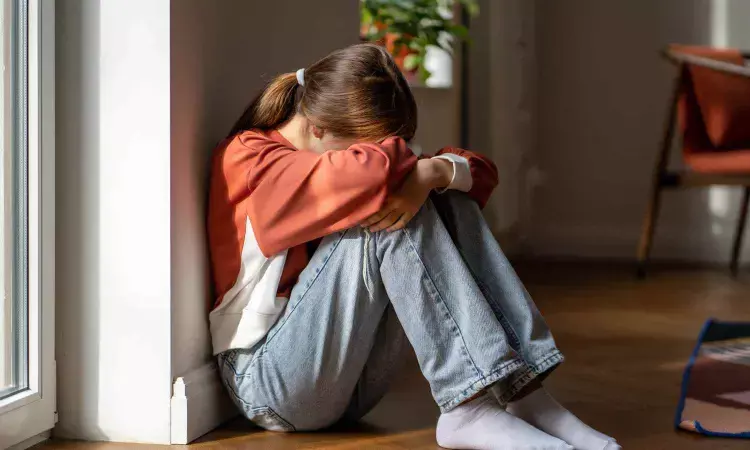- Home
- Medical news & Guidelines
- Anesthesiology
- Cardiology and CTVS
- Critical Care
- Dentistry
- Dermatology
- Diabetes and Endocrinology
- ENT
- Gastroenterology
- Medicine
- Nephrology
- Neurology
- Obstretics-Gynaecology
- Oncology
- Ophthalmology
- Orthopaedics
- Pediatrics-Neonatology
- Psychiatry
- Pulmonology
- Radiology
- Surgery
- Urology
- Laboratory Medicine
- Diet
- Nursing
- Paramedical
- Physiotherapy
- Health news
- Fact Check
- Bone Health Fact Check
- Brain Health Fact Check
- Cancer Related Fact Check
- Child Care Fact Check
- Dental and oral health fact check
- Diabetes and metabolic health fact check
- Diet and Nutrition Fact Check
- Eye and ENT Care Fact Check
- Fitness fact check
- Gut health fact check
- Heart health fact check
- Kidney health fact check
- Medical education fact check
- Men's health fact check
- Respiratory fact check
- Skin and hair care fact check
- Vaccine and Immunization fact check
- Women's health fact check
- AYUSH
- State News
- Andaman and Nicobar Islands
- Andhra Pradesh
- Arunachal Pradesh
- Assam
- Bihar
- Chandigarh
- Chattisgarh
- Dadra and Nagar Haveli
- Daman and Diu
- Delhi
- Goa
- Gujarat
- Haryana
- Himachal Pradesh
- Jammu & Kashmir
- Jharkhand
- Karnataka
- Kerala
- Ladakh
- Lakshadweep
- Madhya Pradesh
- Maharashtra
- Manipur
- Meghalaya
- Mizoram
- Nagaland
- Odisha
- Puducherry
- Punjab
- Rajasthan
- Sikkim
- Tamil Nadu
- Telangana
- Tripura
- Uttar Pradesh
- Uttrakhand
- West Bengal
- Medical Education
- Industry
Social media might be making kids depressed, reveals research

As rates of depression and suicide in youth spike, experts are asking whether social media makes kids depressed-or do depressed kids simply spend more time on social media?
A new study provides answers. Researchers at UC San Francisco found that as preteens used more social media, their depressive symptoms increased. Yet the reverse wasn’t true-a rise in depressive symptoms didn't predict a later increase in social media use.
On average, kids' social media use rose from seven to 73 minutes per day over the three years of the study and their depressive symptoms went up 35%. The study, which was supported by grants from the National Institutes of Health (NIH), was published in JAMA Network Open.
The research team, led by Jason Nagata, MD, MSc, associate professor in UCSF’s Department of Pediatrics, examined data following nearly 12,000 kids aged 9 to 10 years and then three years later at 12 to 13. The study is among the first to use within-person longitudinal data, meaning researchers could track changes over time in each child to accurately assess the link between social media and depression.
“There has been ongoing debate about whether social media contributes to depression or simply reflects underlying depressive symptoms,” said Nagata. “These findings provide evidence that social media may be contributing to the development of depressive symptoms.”
While it’s unclear why social media increases depressive symptoms, prior research points to risks such as cyberbullying and disrupted sleep. In fact, Nagata and team just published a separate study in The Lancet Regional Health - Americas looking at the same cohort of participants, focusing instead on the effects of cyberbullying.
The study found kids aged 11 to 12 years who were cyberbullied were 2.62 times more likely to report suicidal ideation or a suicide attempt one year later. Additionally, those kids were also 2.31 times more likely to experiment with a substance (4.65 times more likely with marijuana, 3.37 with nicotine, and 1.92 with alcohol) in the following year.
Increasingly, the youngest generations find themselves facing a catch-22, with growing evidence that social media is associated with depressive symptoms and risky behavior, yet it is also a primary area for them to connect and communicate with friends.
To address this reality, the American Academy of Pediatrics suggests using the tools in its Family Media Plan to create healthier digital habits for both kids and parents.
“As a father of two young kids, I know that simply telling children to ‘get off your phone’ doesn’t really work,” said Nagata. “Parents can lead by example with open, nonjudgmental conversations about screen use. Setting screen-free times for the whole family, such as during meals or before bed, can help build healthier digital habits for everyone, including adults.”
Reference:
Nagata JM, Otmar CD, Shim J, et al. Social Media Use and Depressive Symptoms During Early Adolescence. JAMA Netw Open. 2025;8(5):e2511704. doi:10.1001/jamanetworkopen.2025.11704.
Dr Kamal Kant Kohli-MBBS, DTCD- a chest specialist with more than 30 years of practice and a flair for writing clinical articles, Dr Kamal Kant Kohli joined Medical Dialogues as a Chief Editor of Medical News. Besides writing articles, as an editor, he proofreads and verifies all the medical content published on Medical Dialogues including those coming from journals, studies,medical conferences,guidelines etc. Email: drkohli@medicaldialogues.in. Contact no. 011-43720751


